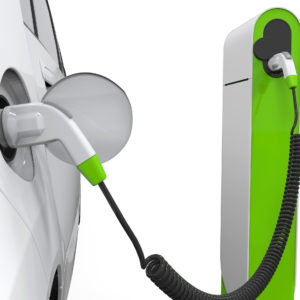Flanked by the nation’s largest automakers, President Joe Biden signed an executive order recently making half of all new cars sold in 2030 electric vehicles (EVs). “The future of the auto industry is electric. There’s no turning back,” he said. There is no turning back, but there is a great deal of work that needs to be done to move forward and bring that future to reality.
The White House fact sheet on the order observed, “China is increasingly cornering the global supply chain for electric vehicles and batteries….” It acknowledged China, and other nations, “are becoming magnets for private investment into their manufacturing sectors – from parts and materials to final assembly.”
China has worked from the mine up to build an unrivaled industrial base for an advanced energy future. From mining and mineral processing to battery manufacturing, China is lapping us.
The U.S. has for too long ceded control of the front end of our manufacturing supply chains to foreign nations, assuming the materials we require will be there when we need them. As we did so, China quietly built a dominance of key mineral supply chains that it has now leveraged into stunning dominance of battery manufacturing, the very technological heart of EVs and home to so many of the auto jobs of tomorrow.
According to Benchmark Minerals Intelligence, an EV supply chain consultancy, 148 lithium-ion battery mega factories are planned for or already producing in China; fewer than a dozen are in the pipeline for the U.S.
Despite vast domestic resources, the U.S. has one operational lithium mine and just one rare earth mineral mine that must export its production to China for processing. Conversely, China controls 80 percent of the global rare earth mineral market and 60 percent of the lithium market. China’s control of other key battery metals like cobalt and graphite is nearly as complete.
China is not alone in its focus on domestic mineral production. Allies including Canada and Australia have also made developing their minerals supply chains a strategic priority. All the while the U.S. has been asleep at the wheel. U.S. mineral import reliance has in fact doubled in the past two decades and is on track to only deepen unless there is a fundamental shift in how we think about mining and materials.
The Biden administration understands what the EV revolution will mean for mineral demand. Citing analysis from the International Energy Agency in a recent supply chain review, the administration found that global lithium demand could soar 40 times by 2040 with cobalt and nickel demand jumping at least 20-fold. The Department of Energy expects that an all-EV future in the U.S. could require more than double current global lithium production. Yet, despite the urgency from Biden to accelerate EV deployment and use it to drive emissions reduction, the urgency to build a secure, responsible, and homegrown material supply chain has yet to materialize. That must change.
The scale of the demand coming our way is too large and growing far too quickly for half measures. We must be active participants in securing U.S. EV supply chains, and we must take an all-of-the-above approach to ensure mineral supply chains become an enabler of U.S. EV deployment and American climate action, not an impediment.
Working with allies to source our mineral needs and standing up a robust material recycling sector should be critical pieces of this effort, but they are at best complements to vastly expanding domestic mineral production and processing by American workers under world-leading environmental and labor standards. It’s essential we recognize that U.S. mining policy is now foundational to energy and climate policy. We can be a global leader in the EV revolution, but it won’t happen if we supercharge domestic mineral demand while failing to ramp up U.S. mineral production.

